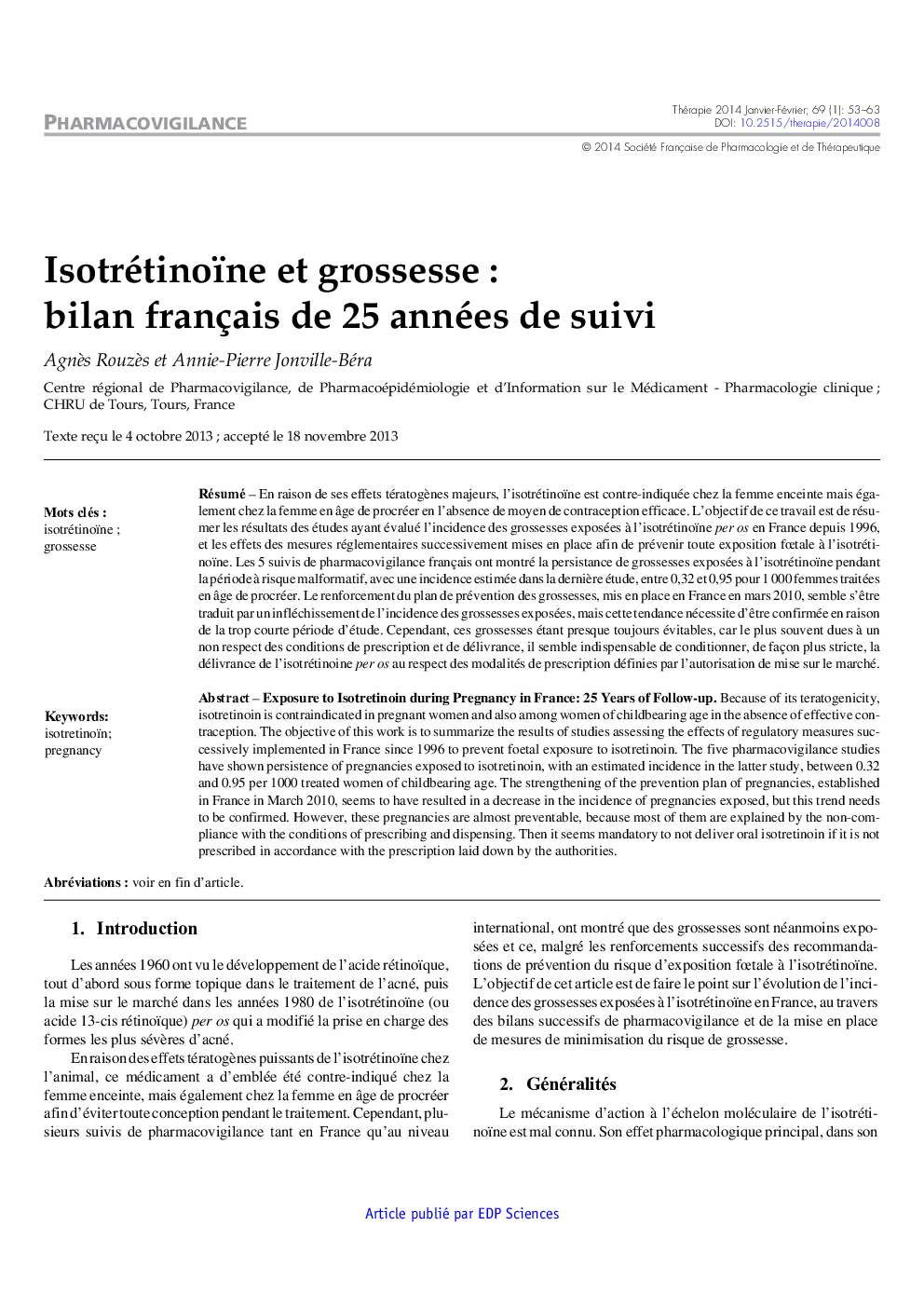| Article ID | Journal | Published Year | Pages | File Type |
|---|---|---|---|---|
| 2578883 | Thérapie | 2014 | 11 Pages |
Abstract
Because of its teratogenicity, isotretinoin is contraindicated in pregnant women and also among women of childbearing age in the absence of effective contraception. The objective of this work is to summarize the results of studies assessing the effects of regulatory measures successively implemented in France since 1996 to prevent foetal exposure to isotretinoin. The five pharmacovigilance studies have shown persistence of pregnancies exposed to isotretinoin, with an estimated incidence in the latter study, between 0.32 and 0.95 per 1000 treated women of childbearing age. The strengthening of the prevention plan of pregnancies, established in France in March 2010, seems to have resulted in a decrease in the incidence of pregnancies exposed, but this trend needs to be confirmed. However, these pregnancies are almost preventable, because most of them are explained by the non-compliance with the conditions of prescribing and dispensing. Then it seems mandatory to not deliver oral isotretinoin if it is not prescribed in accordance with the prescription laid down by the authorities.
Keywords
EMASNCImgIVGCRATAMMEMEAPPGANSMRCPAFSSAPSCrPVEuropean Medicines agencyAgence française de sécurité sanitaire des produits de santéAgence Nationale de sécurité du médicament et des produits de santéInterruption volontaire de grossesseIsotretinoinIsotrétinoïnePregnancyGrossesseinterruption médicale de grossesserésumé des caractéristiques du produitautorisation de mise sur le marchéCentre régional de pharmacovigilance
Related Topics
Health Sciences
Pharmacology, Toxicology and Pharmaceutical Science
Pharmacology, Toxicology and Pharmaceutics (General)
Authors
Agnès Rouzès, Annie-Pierre Jonville-Béra,
